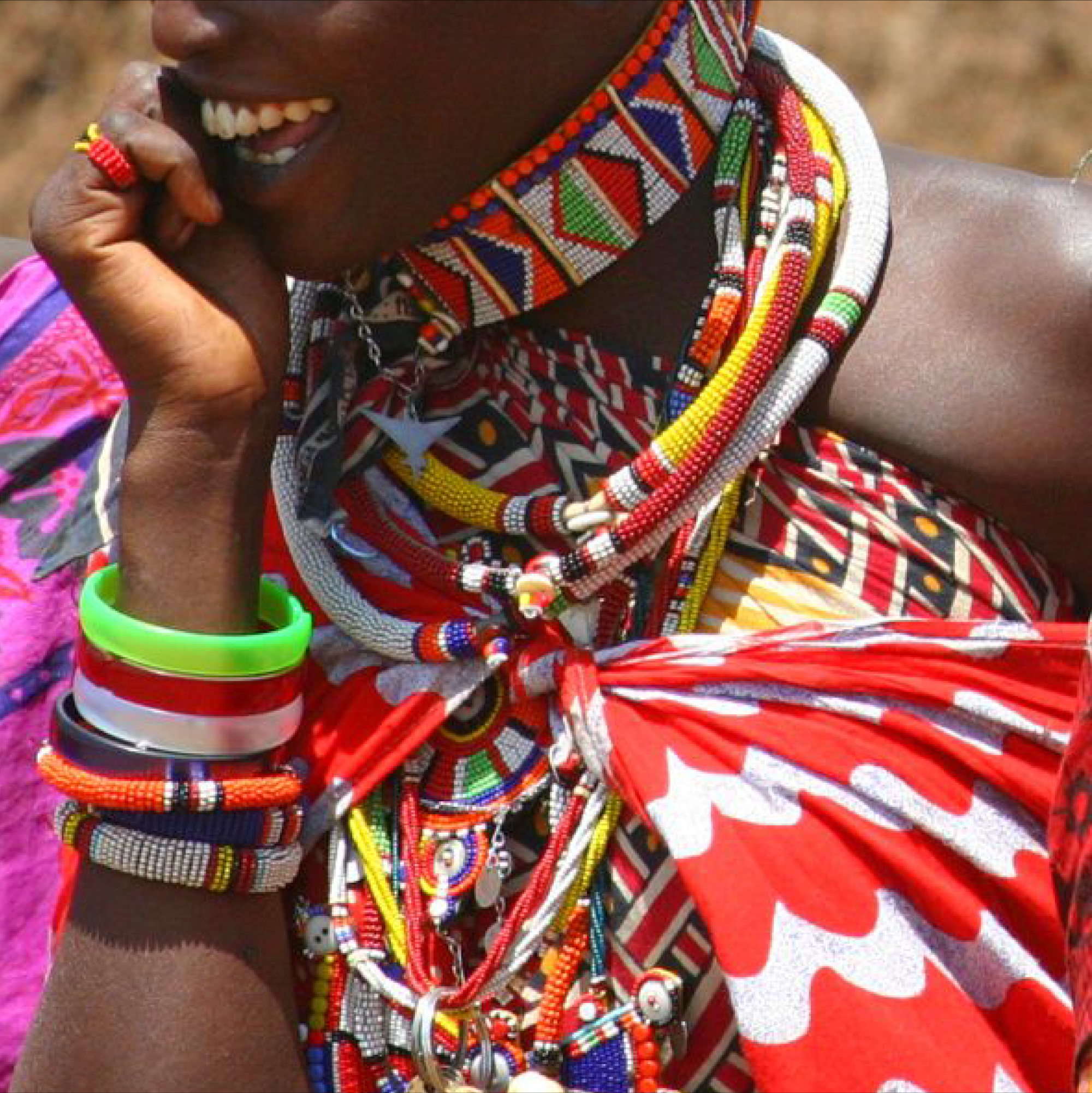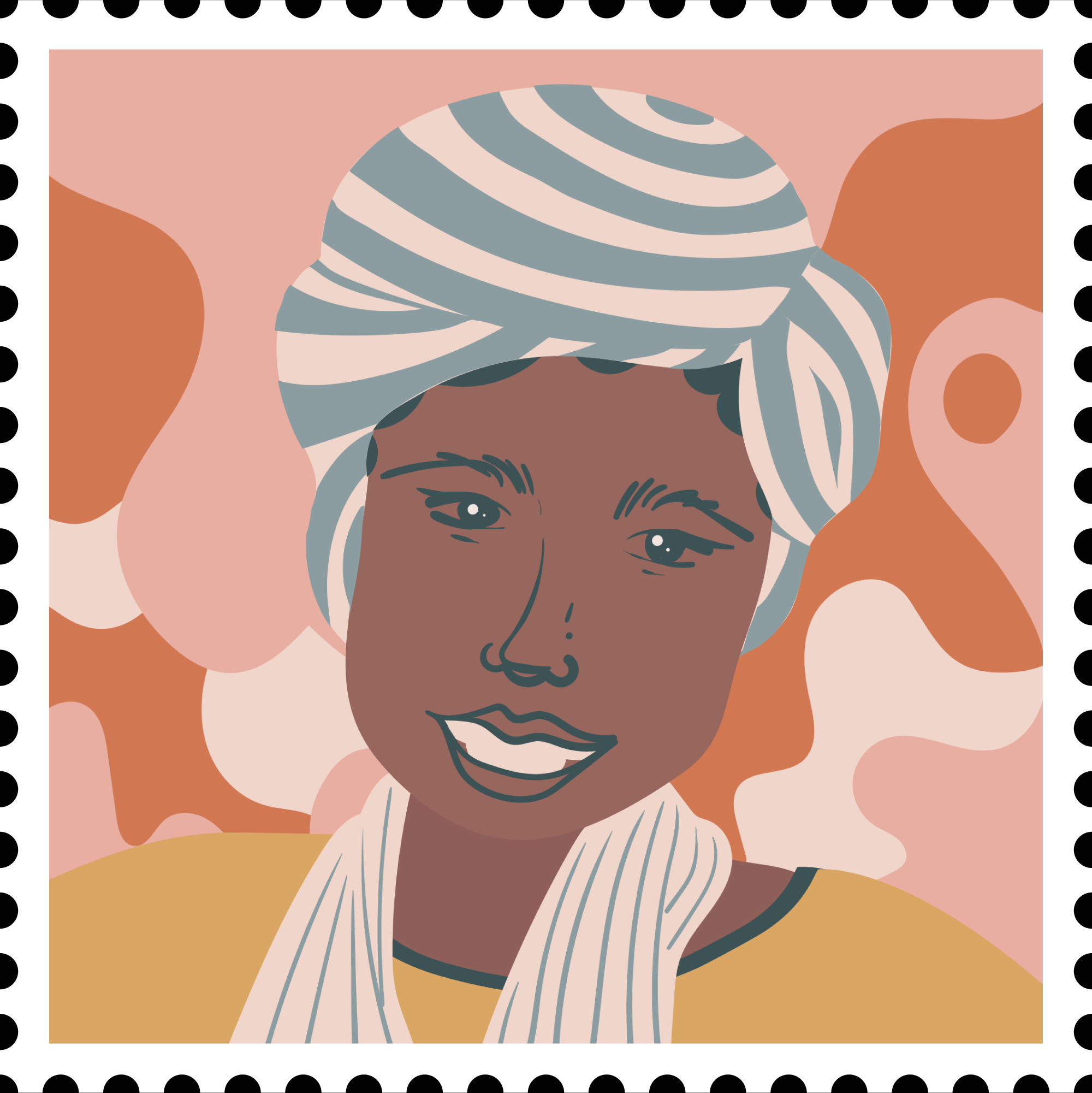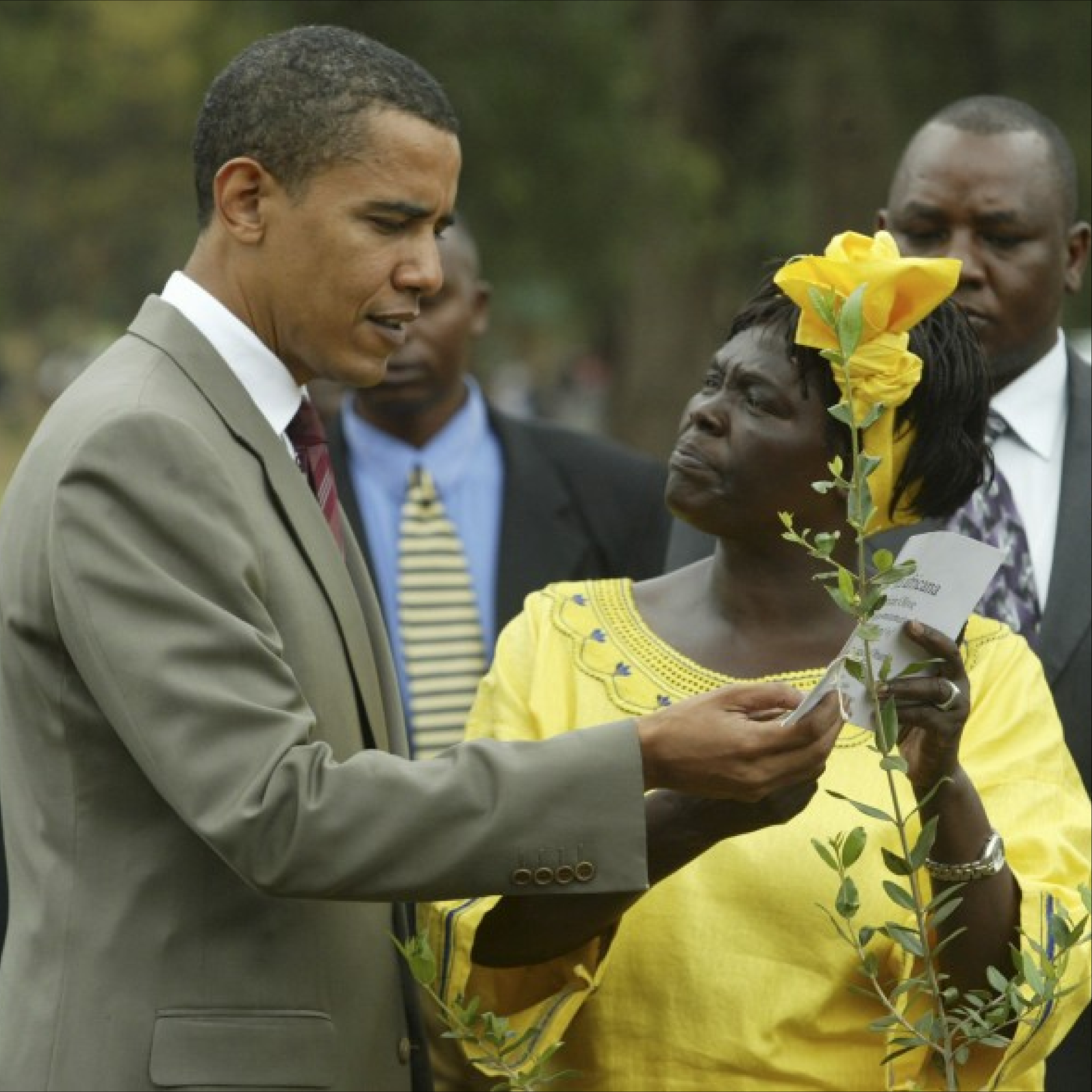Wangari Maathai
-
 Kenya
Kenya -
 Environment
Environment -
 Nobel Peace Prize
Nobel Peace Prize
Wangari Maathai was a social, environmental and political activist known for her conservation efforts and push for women’s liberation. Maathai was born in rural Nyeri, Kenya in 1940. After attending school in the United States on scholarship and becoming the first woman in East and Central Africa to earn a doctorate degree, she became a professor. Maathai was an active member of the National Council of Women of Kenya from 1976 to 1987 and where she served as chair beginning in 1981.
In her early days at the council, Wangari envisioned the idea of Kenyan people planting trees in their native country to enrich the environment and create jobs for women, subsequently cultivating it into a grassroots organization known as the Green Belt Movement. The movement allowed for the planting of over 20 million trees, and thus won dozens of awards, including the Nobel Peace Prize, for which Maathai was the first Black African woman to be awarded. She was then appointed Assistant Minister for Environment, Natural Resources and Wildlife for the Parliament of Kenya.
During her life as multifarious activist fighting for democracy, human rights and conservation, Maathai endured police brutality and political rebuff in order to become the lauded role model known today. After countless awards, publications, honorary degrees and authoring several books, including a memoir, Wangari died on September 25th, 2011 at the age of 71.
Kenya
-

- Flag
-

- Population
- 46,790,758
-

- Capital
- Nairobi
-

- GDP (PPP)
- $3,516
-

- Founded
- December 12, 1963
-

- Total Area
- 581,309 km2 (49th)
-

- Demonym
- Kenyan
-

- Government
- Unitary presidential constitutional republic



Artwork
Wangari Maathai's portrait is created in a style that is graphic and organic, referring to traditional Kenyan art including Kisii soapstone sculpture and Maasai beadwork.
Wangari Maathai was a social, environmental and political activist known for her conservation efforts and push for women’s liberation. Maathai was born in rural Nyeri, Kenya in 1940. After attending school in the United States on scholarship and becoming the first woman in East and Central Africa to earn a doctorate degree, she became a professor. Maathai was an active member of the National Council of Women of Kenya from 1976 to 1987 and where she served as chair beginning in 1981.
In her early days at the council, Wangari envisioned the idea of Kenyan people planting trees in their native country to enrich the environment and create jobs for women, subsequently cultivating it into a grassroots organization known as the Green Belt Movement. The movement allowed for the planting of over 20 million trees, and thus won dozens of awards, including the Nobel Peace Prize, for which Maathai was the first Black African woman to be awarded. She was then appointed Assistant Minister for Environment, Natural Resources and Wildlife for the Parliament of Kenya.
During her life as multifarious activist fighting for democracy, human rights and conservation, Maathai endured police brutality and political rebuff in order to become the lauded role model known today. After countless awards, publications, honorary degrees and authoring several books, including a memoir, Wangari died on September 25th, 2011 at the age of 71.





